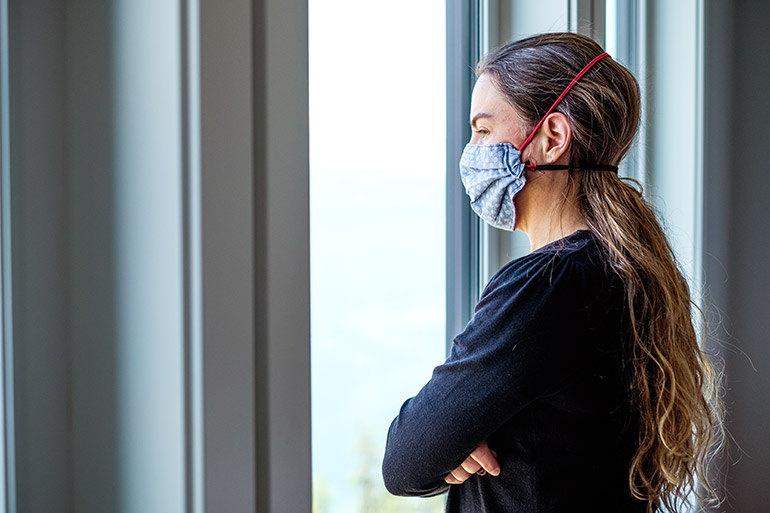
Physicians at Kelowna General Hospital, together with UBC emergency medicine residents and Southern Medical Program students have come together to develop a phone follow-up service for self-isolating patients.
Volunteers offer non-medical follow-up help and advice
In the early days of the COVID-19 outbreak, testing in the emergency department at Kelowna General Hospital (KGH) was primarily reserved for those patients needing hospitalization to treat their disease.
Patients diagnosed with mild-disease symptoms were instead directed to self-isolate at home for a minimum of ten days without being tested. As COVID-19 treatments and testing protocols continued to evolve, discharged patients weren’t necessarily getting the most up-to-date information on how to effectively self-isolate.
It was a knowledge gap that Dr. Tony Kwan, a KGH emergency physician and UBC clinical instructor, looked to fill with the support of Southern Medical Program (SMP) student volunteers from UBC Okanagan.
“We needed to eliminate confusion and ensure our patients could effectively manage their symptoms and limit the further spread of COVID-19 in the community,” says Kwan.
Kwan enlisted the help of UBC emergency medicine residents and a group of SMP students to operationalize a phone follow-up service for self-isolating patients.
“Self-isolation is a new concept for most members of our community and we wanted to support patients in understanding the importance and guidelines,” says Dr. Kerry Spearing, a UBC emergency medicine resident. “We also wanted to identify common barriers preventing patients from self-isolating effectively, and develop solutions to assist patients in navigating those barriers.”
By far, the two biggest concerns for patients were how to obtain groceries and prescriptions without leaving the home. These common challenges led the team to compile a self-isolation handout including a detailed list of grocery stores and pharmacies willing to deliver within the community.
Over the past two months, SMP student Kyla Freeman has been one of the volunteers checking on patients by phone. They review self-isolation protocols, share community resources, and field non-medically related questions. Patients are contacted within the first 48 hours of discharge and again five to seven days later.
“Hearing patient stories about the virus impact and barriers to self-isolation has been an eye-opening experience,” says Freeman. “Patients can find it incredibly challenging to self-isolate, especially when trying to minimize transmission to their household contacts.”
In addition to the KGH Emergency Department, the phone service has grown to include self-isolating patients seen at the Urgent Primary Care Centre in Kelowna. Kwan and the team have also connected with colleagues in the Lower Mainland to share the model and best practices.
“I’m definitely grateful to be able to support patients in some way to help make a difference,” says Freeman. “It’s a challenging time for everyone, and we’re hopefully able to make their lives a little bit easier.”